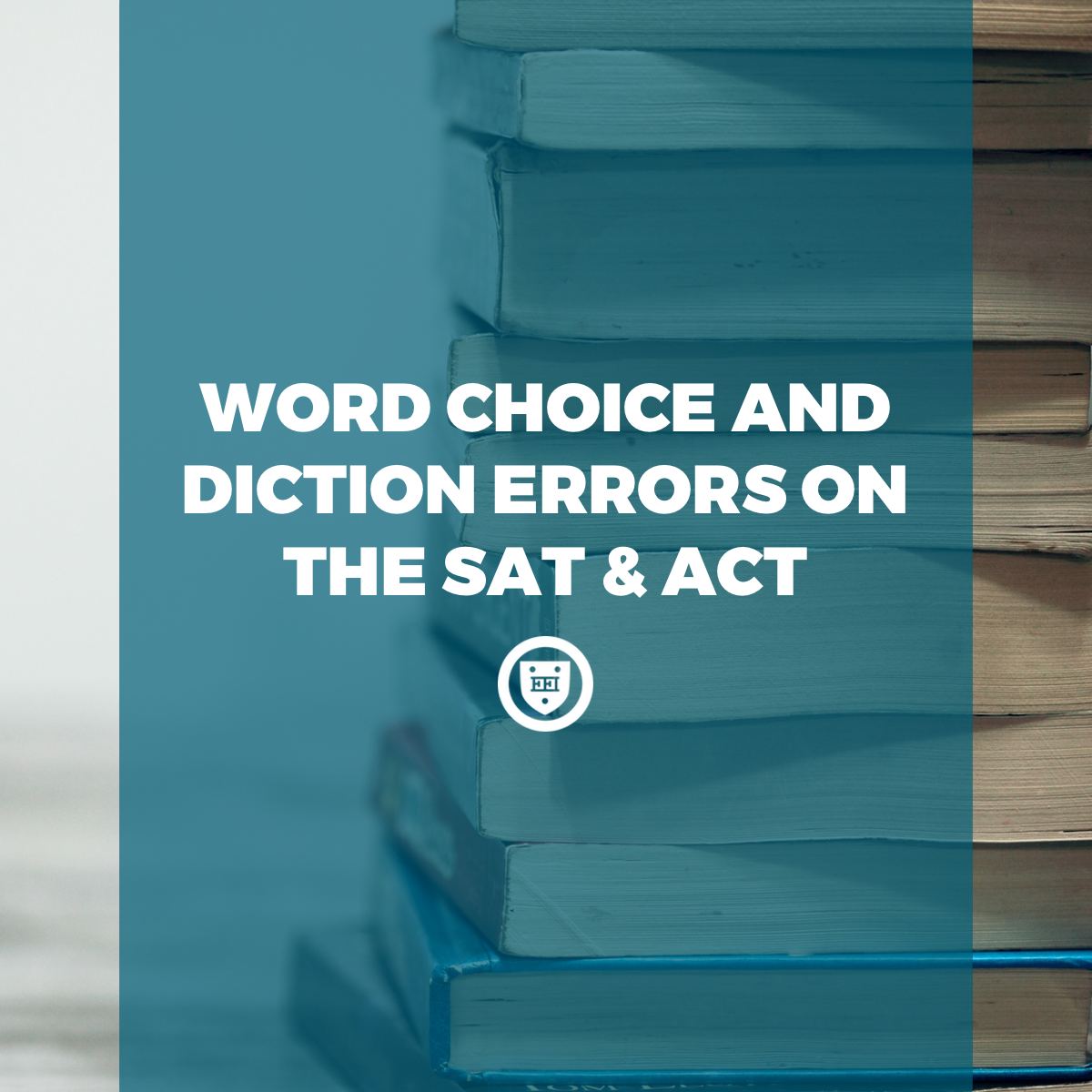Word Choice and Diction Errors on the SAT & ACT
You may have heard of the word “diction” from your English instructors, but what does it mean? And how does it work on the ACT/SAT? Diction is the author’s use of language, or word choice. Since many words give off different connotations based on context, authors are particular about when to use certain language or vocabulary in order to communicate an idea as clearly as possible. It is important to be sensitive to the various ways in which language can work if you want to perform well on the Reading & English/Writing sections of standardized tests.
How do diction questions appear on the ACT/SAT?
On the Writing and Language/English portions of standardized tests, you will find questions that test your ability to recognize the proper usage of a word based on the context. Unlike Vocabulary in Context questions, in which you must find the proper synonym, your goal with Diction questions is to select the word that best fits with the surrounding language. These are often commonly confused words or idioms that follow prepositions, so preparing for diction questions can be difficult considering there are hundreds of words and phrases that can be tested.
Some Strategies
Your best bet for correctly answering Diction questions will be to read more. Yes, it’s a time-consuming endeavor, and the fruits of your labor may not appear overnight, but the best way to improve is to gain exposure through regular practice. That being said, many of you don’t have the time to develop those skills before you take the ACT or SAT, so here are some strategies you can incorporate for diction questions.
Steer clear of informal or casual language. Informal language is regular, everyday communication often used among friends or family. It is considered inappropriate on standardized tests, but this type of language can be difficult to eliminate because it is so commonly used in our lives. In fact, students frequently fail to recognize casual language as an error on the ACT and SAT because such language is generally acceptable in normal conversation. If an answer choice sounds like something you might say among your friends but not in a more formal or academic setting, it’s probably not a safe bet to choose as the right answer.
Avoid extreme or exaggerated language. This rule is generally true for the ACT and SAT reading and grammar sections. Unless you have clear-cut support in the passage, do not pick answer choices with strong language or “fancy” words. These choices may sound attractive, but they are usually misleading and trying to lure you into picking the wrong answer. You will almost always find an answer choice with the same meaning stated more plainly.
Wordiness is usually not your best option. The ACT and SAT prefer conciseness when it comes to grammar, so the correct answers tend to get the point across in the fewest words possible. This isn’t a suggestion to only pick the shortest answer choice, but be on the lookout for repetitive or redundant answer choices.
Watch out for commonly confused words. The English language is filled with words that sound exactly alike but have different meanings. Some of these words are homophones, but others are simply words that are easily mixed up. If your vocabulary isn’t particularly strong, you may experience difficulties with questions on commonly confused words. You can find a worksheet here to learn and practice these words.
Sometimes, you simply have to know the meaning of the words in order to choose the correct answer, and your ability to understand the definitions and connotations of various words will come largely from how much you read. It always circles back to this point because evidence has shown that stronger readers score higher on the Reading & Writing sections of standardized tests. Frequent exposure to college-level material will familiarize you with the seemingly endless ways in which language can be utilized. You must not only read regularly but also look up the meanings of any unfamiliar words. Maintaining a word bank that you can revisit from time to time will ensure vocabulary retention. With enough practice, you’ll develop the necessary level of comfort to tackle these questions effectively.
Jon G. is originally from Houston, Texas. He holds a Bachelor's degree from Harvard University and is currently one of the resident English gurus at Elite Prep Los Angeles. Nothing makes him more proud and pumped up than watching his students succeed. When it comes to hitting the books, Jon recommends starting early and studying in increments to avoid burnout. He's a huge basketball fan, loves green tea, and his favorite vocabulary word is "seditious."


